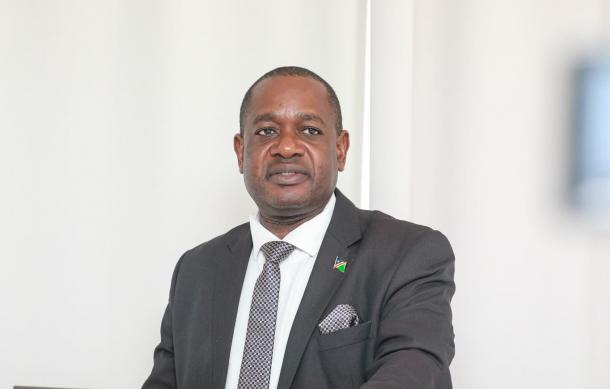
The Minister of International Relations and Cooperation says Africa is becoming increasingly interconnected, strengthening the continent's resolve to achieve a united continent.
In his speech at the 61st celebration of Africa Day, Dr. Peya Mushelenga highlighted that 54 AU member states signed and 47 ratified the African Continental Free Trade Area (AfCFTA), signed in Kigali in 2018.
Minister Mushelenga says the ratification of the AfCFTA is evidence of deeper continental integration and could potentially lift 30 million people out of poverty.
He says the road ahead is not easy, but with renewed effort and determination, the continent will overcome challenges such as conflicts, instability, food insecurity, health issues, unemployment, and climate change.
The African Union's second 10-year implementation plan for Agenda 2063 is a bold roadmap for Africa's transformation, he added.
Given this year's theme, "Educate Africa Fit for the 21st Century," which aligns with Africa's Agenda 2063 and the United Nations Sustainable Development Goals, Mushelenga stressed that education is pivotal for developing human and social capital through innovation, science, and technology.
In his message delivered by the Deputy Executive Director of Multilateral Jerobeam Shaniika, Mushelenga pointed out that the rise of artificial intelligence presents both opportunities and challenges.
"Recent reviews of Africa's Education 23 Framework, the AU-UNESCO Continental Report, and the joint OAU-UNICEF Report highlight significant efforts over the past decade to ensure no child is left behind in education. Access, completion, and quality of basic education have improved, with notable increases in school attendance, particularly among girls."
Angola's Ambassador to Namibia and Dean of the African Group and the diplomatic corps, Jovelina Imperial e Costa, also pointed out some significant strides Africa has made towards political, social, and economic independence.
She said the role of the Organisation of African Unity and its successor, the African Union, in raising unity, solidarity, and cooperation among African nations continues to be pivotal.
"Over the years, the AU has been instrumental in addressing various challenges such as conflicts, economic disparities, and health crises."
Reflecting on the progress made, she commented on the ongoing efforts to achieve sustainable development across the continent, particularly through the African Union's Agenda 2063, which outlines a strategic framework for socio-economic transformation.
Bradley Tjongarero, a 26-year-old political scientist, referenced the African Union Youth Charter of 2006, which highlights numerous challenges faced by African youth.
These include marginalisation, inequalities, unemployment, and a lack of access to quality education and healthcare.
Tjongarero says that Africa Day's theme of education is an opportunity to emphasise civic education, which he describes as crucial for preparing young people to be active and informed citizens in a democracy.
He says the continent is, however, facing some challenges, including the fact that more than one in four school-aged children in Africa are out of school, and unemployment is a top concern among African youth.





